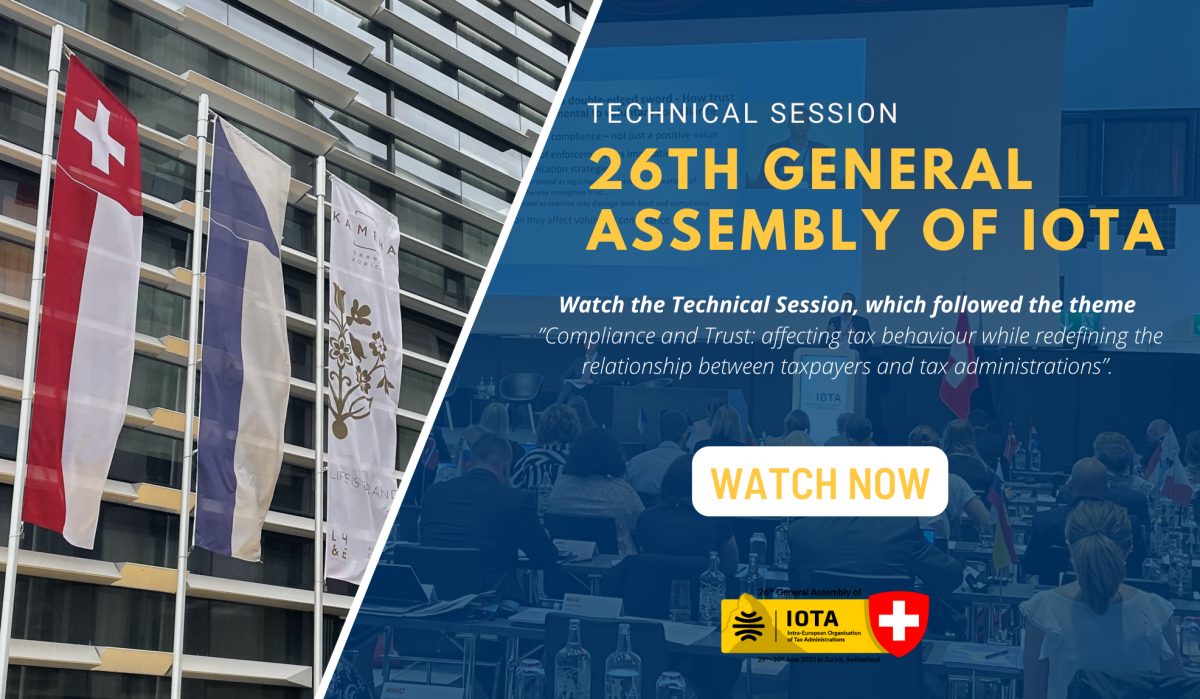'It ran like a Swiss watch’ – noted precisely Hans D’Hondt from Belgium, one of the high-ranking tax officials who attended the 26th General Assembly of IOTA which took place in an important economic and financial hub at the foot of the Swiss Alps. Under the framework of the newly developed hybrid format, the Organisation together with the Swiss Presidency of IOTA successfully held its 26th General Assembly on 29th-30th June 2022 in Zurich, Switzerland giving a fresh start and a totally new experience to its most important activity after two years of virtual operation.
This was the first in-person General Assembly which offered a great opportunity for the professional gathering of high-ranking officials from partner organizations, the business community and academia along with the representatives of IOTA member tax administrations since the outbreak of the pandemic.
Most of the attendees highlighted the importance of the face-to-face meetings particularly in an international network like IOTA. They all believe that shaking hands with one another again, networking with colleagues out of the digital space, exchanging their views and experiences about various topics during the coffee breaks or the breakout sessions and also, having fun together on the social events are exactly the main elements of that unique experience which had fallen victim to the coronavirus pandemic in the last years and could not be replaced virtually.
It is always easy to get involved in a conversation over a coffee break between two plenaries, so I took the opportunity and asked some of the Director Generals, representatives to share their first impressions of the event with us. In the following interview they reveal their experience from the first hybrid General Assembly in the history of IOTA and more. As they also mutually agreed that there is nothing that could beat the taste of the original Swiss cheese, sausage, and the irresistible delicious chocolate which is one of the greatest things about the host country, Switzerland. And their flag is a plus.
Erika Szabó/IOTA: How are you feeling today? How does it feel to be back again physically in the General Assembly?
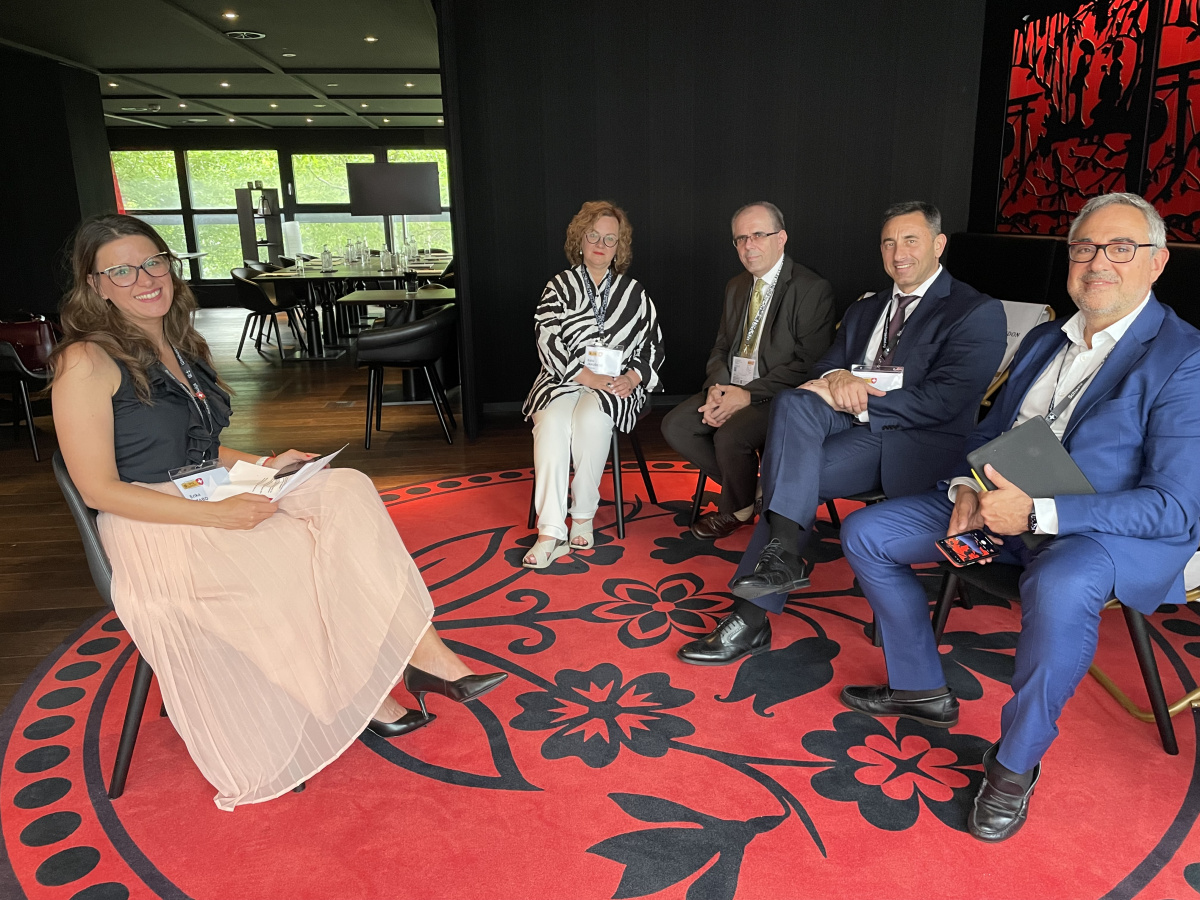 Hans D’Hondt, President of Executive Committee, Federal Public Service Finance of Belgium: A feeling that is shared by a lot of participants is that it is so good to meet each other in person again. Digital meetings are fine but when you really have to exchange views and come to agreements the human and often informal contacts are so important!
Hans D’Hondt, President of Executive Committee, Federal Public Service Finance of Belgium: A feeling that is shared by a lot of participants is that it is so good to meet each other in person again. Digital meetings are fine but when you really have to exchange views and come to agreements the human and often informal contacts are so important!
Rumen Spetsov, Director General, National Revenue Agency of the Republic of Bulgaria: It is a great opportunity with huge benefits for each of us. It gives us a great chance to meet each other again and initiate some personal meetings and informal conversations which is a very good thing.
Ignacio del Río, Head of the International Relations Unit, Spanish Tax Administration: It is nice to be together again, and find new people. I am full of energy, this is the first day of the General Assembly and we have a lot of things to do today, and we will also have so many professional talks tomorrow during the Technical Session.
Gábor Reményi, PCP to IOTA, National Tax and Customs Administration of Hungary: My feelings are the same. It is a great opportunity to meet the old colleagues and old friends. This is also a good opportunity for discussing the actual things, not only professional, but the organisational issues. I would say mostly the organisational issues because I am responsible for the PCP affairs at the national tax administration in Hungary and now, there are many PCP colleagues as well, therefore I can discuss many things with them.
Edita Janušienė, State Tax Inspectorate under the Ministry of Finance of the Republic of Lithuania: It is great, because after a long break I have the opportunity to meet colleagues that I have not seen for a long time. On the other hand, discussing important issues, especially the relevant topics such as the IOTA Charter, gives rise to a great deal of responsibility.
Sanja Lukarevska, Director of the Public Revenue Office, North Macedonia: It is always a pleasure to attend an IOTA event, as they are well organised, content-wise informative, and offer a great opportunity for collaboration with other Tax administration`s representatives. The in-person presence at the event, additionally adds up quality to this experience and make it more colourful, bringing the fresh air in the joint international cooperation. Thank you, IOTA, for this experience!
ES/IOTA: What are your main impressions after the first day of the General Assembly?
Hans D’Hondt, Belgium: It ran like a Swiss watch. It is always a pleasure to be part of a well organised and well-run meeting. Our Swiss colleagues really performed according to their reputation. Therefore, it was so well deserved that Marc received an IOTA award last night.
Rumen Spetsov, Bulgaria: My impressions are absolutely positive. This is my first General Assembly and I have only positive experience so far. We have done a lot of things during the first day of the event. I would underline the voting, which is a very important task, so we keep going.
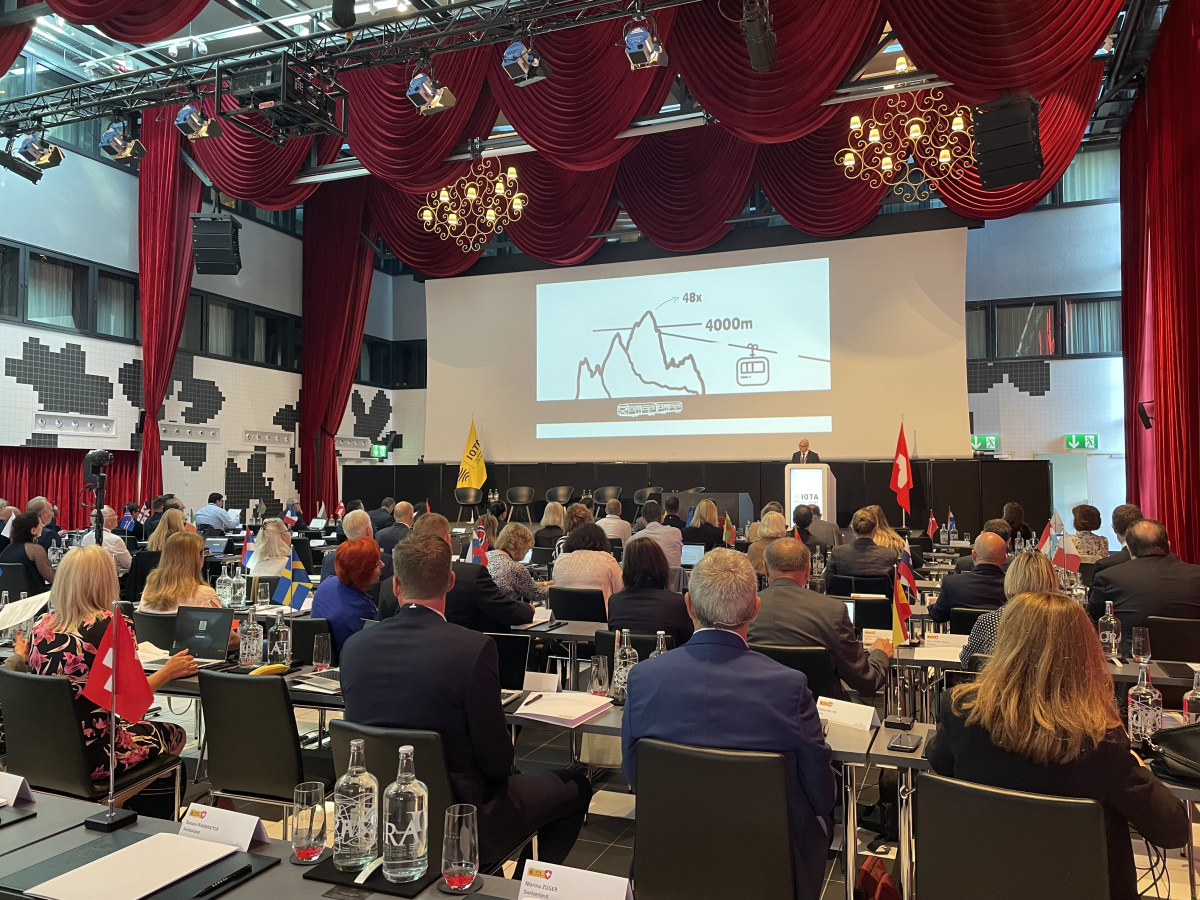 Ignacio del Río, Spain: I see that everything is planned and well conducted. However, I think the day of the voting could be reduced. One entire day for the voting is perhaps too long. Next time, maybe we could try to vote in advance, for instance two or three days before the General Assembly in order to dedicate more time for the technical sessions and only discuss about issues with no previous agreement.
Ignacio del Río, Spain: I see that everything is planned and well conducted. However, I think the day of the voting could be reduced. One entire day for the voting is perhaps too long. Next time, maybe we could try to vote in advance, for instance two or three days before the General Assembly in order to dedicate more time for the technical sessions and only discuss about issues with no previous agreement.
Gábor Reményi, Hungary: I agree with Ignacio. On the first day of the General Assembly, I felt like I am a voting machine. Voting should be simplified somehow. It could be done via online, not personally in the future. This would probably make the whole voting process simpler and easier.
Edita Janušienė, Lithuania: It is a bit sad that countries – aggressors have remained members of the IOTA, albeit suspended. In my opinion, we did not pass the real test of values. However, we are glad about that Lithuania have been elected to the Executive Council of IOTA for the term 2022/2023.
Sanja Lukarevska, North Macedonia: The administrative session of the event is very important, as decisions of the future functioning and development of the Organisation are being brought. In my opinion the session was informative, well prepared, transparent and gave the same opportunity for the digital participants as well as for the participants that were present in-person.
ES/IOTA: What are your opinions on the newly developed hybrid format applied at the General Assembly?
Hans D’Hondt, Belgium: It is a little bit the best of both worlds. Sometimes when purely technical issues are to address, the digital solution can be great but there is always a balance to find between these practical considerations (cost, organisational,…) and the use to do some real networking with people really talking to each other and knowing each other. These personal aspects are very important in an international network like IOTA. IOTA ran in the COVID period its events fully digital which led to an increase in the participation. We’ll have to use the lessons we learned in that period and then try to combine the best of both worlds: Continue to provide physical events because IOTA is good at building networks, but by allowing also virtual participation we can get a lot more experts involved, and we can have more benefit from the events. And – important – at a lower cost.
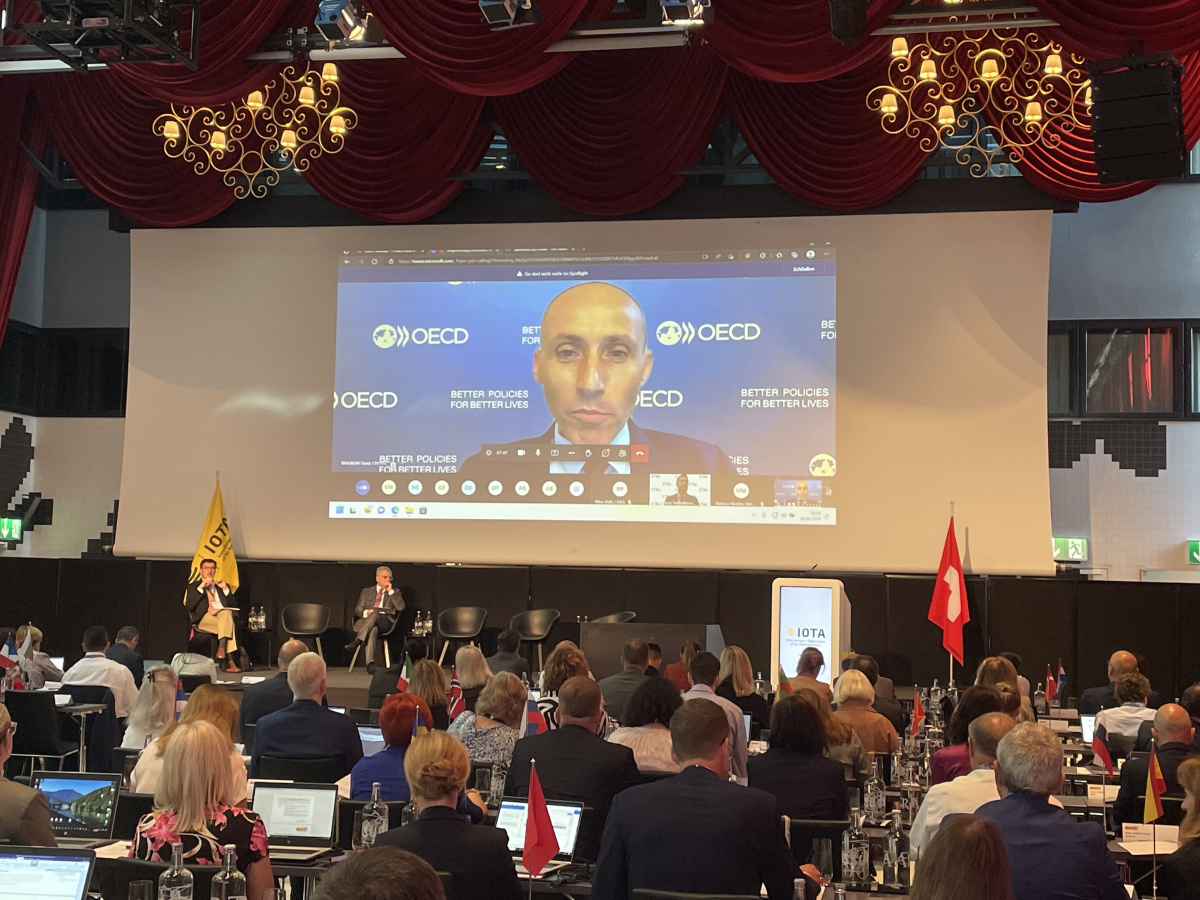 Rumen Spetsov, Bulgaria: The hybrid format requires a very professional technology and serious technical background, as it also has to be on time. My opinion is that the face-to-face events are better and more efficient.
Rumen Spetsov, Bulgaria: The hybrid format requires a very professional technology and serious technical background, as it also has to be on time. My opinion is that the face-to-face events are better and more efficient.
Ignacio del Río, Spain: I think this new hybrid format could reduce the interest in the event. We have to distinguish between “technical and fundamental” events. If it is a technical event, you can freely use this format, it is not necessary to be present in the meeting. However, in the case of a General Assembly that you organise only once in a year and you would like to have all the DGs together on the event, the hybrid format simply does not work. I totally understand that this format can function as a bridge between both (digital and physical) world, but this could easily result in very low number of DGs attending the event physically. One of the purposes of this event is to bring the DGs together – particularly after the pandemic – since they play an important role in the operation of the general assemblies. Not only during the administrative or the technical session, but on the social events as well. The General Assembly serves as a platform to facilitate the development of relations between the directors general, which is also very important.
Gábor Reményi, Hungary: A hybrid event can have many advantages as well. Especially I would emphasize the technical part of the General Assembly. There are many colleagues from Hungary, specialists and tax experts who could not attend personally the event, but they can join digitally to the technical session of the General Assembly. From this aspect, giving a chance to the hybrid format is very useful. At the same time, I agree with Ignacio the Director Generals should be participated physically in the general assemblies.
Edita Janušienė, Lithuania: Well, what once seemed like an exception is now considered as a daily routine like the hybrid learning formats or remote working. I do believe that this is a great opportunity to join those who cannot be present at this General Assembly. However, online events cannot fully replace live communication, so I would encourage colleagues to find proper time for joining the meetings personally.
Sanja Lukarevska, North Macedonia: The new hybrid format is the future of the events. This format allows larger participation to the IOTA events, without financial implication for the digital participants, and with well-known advantages for the in-person participants. IOTA proved that can organise hybrid events with high standards and I encourage you to keep up the good work.
ES/IOTA: What are your expectations of the future hybrid IOTA events? What outcomes do you expect?
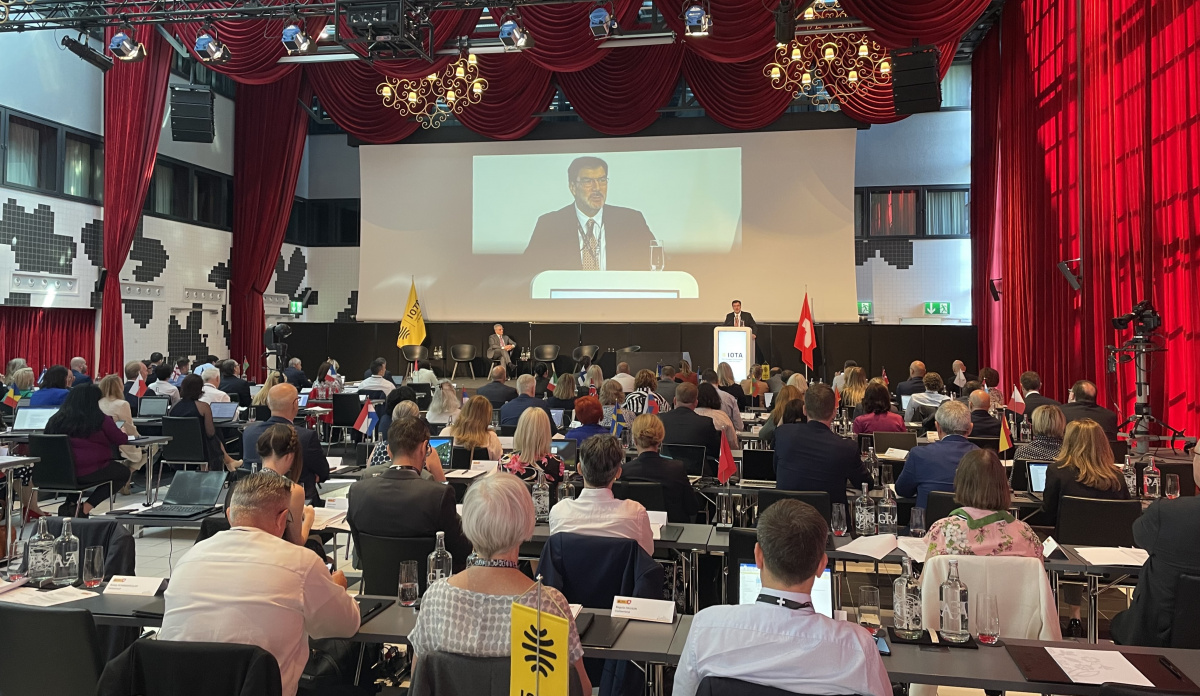 Hans D’Hondt, Belgium: First of all more participation. Reach more of our colleagues. There’s an important distinction between participating physically and virtually and we shouldn’t expect that virtual participants will have the same experience. We should focus on the benefits of going hybrid. The fact that we’re recording the presentations and our experts can watch them later on, or only watch certain agenda topics that are important to them and share them with their colleagues, is a major benefit.
Hans D’Hondt, Belgium: First of all more participation. Reach more of our colleagues. There’s an important distinction between participating physically and virtually and we shouldn’t expect that virtual participants will have the same experience. We should focus on the benefits of going hybrid. The fact that we’re recording the presentations and our experts can watch them later on, or only watch certain agenda topics that are important to them and share them with their colleagues, is a major benefit.
Ignacio del Río, Spain: I hope that we can understand the important keys of each format. I have enjoyed participating in a session with two Commissioners on stage and one by video conference at the same time. This is the way.
Rumen Spetsov, Bulgaria: Hybrid events could be very effective for IOTA technical events, giving possibility to a greater number of experts to interact in person and online, exchanging knowledge, views and experience in all areas of taxation. The right to choose a virtual or face-to-face meeting, the ability to attend all events and take part in discussions - this is what I expect from hybrid events. Flexibility provides many opportunities for tax administrations when the world is so diverse, digital and at the same time limited. The available technical equipment is of great importance, as, for example, the use of multiple cameras and sufficient interactive activities involving online participants create a sense of real interaction between all participants. However, this format is not so suitable for the high level administrative meetings where networking and strategic decisions are crucial for tax administrations.
Edita Janušienė, Lithuania: I believe that it will ensure more active and abundant participation as well as simpler and more efficient organisation of events. Besides, it will save our costs and simultaneously increase opportunities to exchange our views and experiences.
Gábor Reményi, Hungary: I consider hybrid events as a great possibility for IOTA. The utmost benefit of hybrid events could be the expanded accessibility of technical events: much more experts could attend these events virtually than the „traditional” in-person events. This means that the effectivity of spreading information delivered in presentations could be multiplied via hybrid events, compared to in-person ones. This kind of „remote” participation in IOTA technical events means a cost effective solution for member countries because they do not have to pay for travel and daily allowances of delegated experts. On the other hand, the technical equipment, which is necessary for successful delivery of hybrid events, could be expensive for IOTA, when this equipment is rented in a foreign country (i.e. outside of Budapest where the Secretariat operates). That is why pros and cons must be carefully evaluated before making a decision on organising a hybrid event.
Sanja Lukarevska, North Macedonia: I assume that the hybrid events will become more and more popular in the future. The tax administrations could choose whether they would like to send participants in-person, or to join digitally. This provides more flexibility for Tax administrations, needed when financial constraints, travel bans, or other unpredictable high impact event are in place. We are excited to fully exploit the advantages of this new format of the events.
ES/IOTA: Do you think that the Administrative Session covered all the issues undertaken by IOTA during this year? Are you satisfied with the scope of the Administrative Session?
Hans D’Hondt, Belgium: Yes, absolutely. Let’s not forget that there were some very tricky issues that were handled in a very efficient and a very diplomatic way. My congratulations to the Presidency. We could think about how to go quicker in the decision process. We maybe should rethink how we present all the topics. Basically, every participant should have read the documents before the meeting and if you haven’t prepared well for the General Assembly, the presentations aren’t enough to give you the opportunity to cast your vote in a well-informed manner. Our delegation goes through the documents thoroughly before the event and it requires some preparation. There’s not a lot of interaction in the administrative sessions. Maybe we should rethink the set up and have a Q&A per topic with the possibility to send in questions before the GA, address them, have a discussion and then cast our votes. I believe that might be of more benefit.
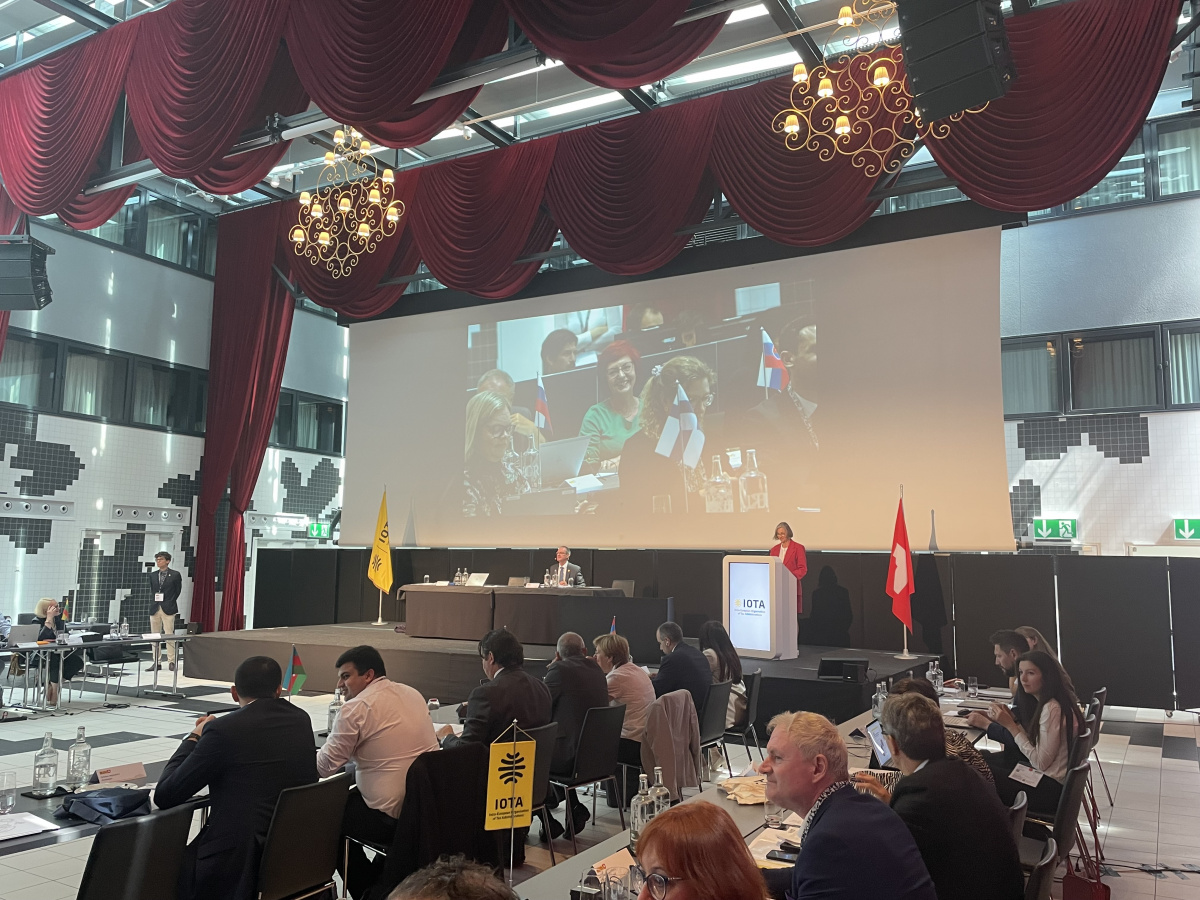 Ignacio del Río, Spain: This year we had a lot of difficult questions to discuss. And of course some of them were delicate and others very technical. All of them have been discussed and approved, and I must say that the organization of the GA was perfect. Perhaps trying to reduce the period of voting, making them in advance by written procedure could be a solution.
Ignacio del Río, Spain: This year we had a lot of difficult questions to discuss. And of course some of them were delicate and others very technical. All of them have been discussed and approved, and I must say that the organization of the GA was perfect. Perhaps trying to reduce the period of voting, making them in advance by written procedure could be a solution.
Rumen Spetsov, Bulgaria: Having a real conversation with other Director Generals about high level management issues, problems is really important. There are many specific themes to talk about and if the DGs are not attending personally the event, these conversations will remain a missing part of the General Assembly. That would be really great if all the Director Generals were here.
Gábor Reményi, Hungary: It has been an old problem, only a very few Director Generals come to the event personally. I have already seen that in the past so it is not a new problem. Attending personally the General Assembly is a very good opportunity for them to discuss the high level problems with their colleagues as it was mentioned before. I know that there are obviously reasons why some of them cannot be here, but the reality, to attend a General Assembly physically always gives a bit more, it is a special experience.
Edita Janušienė, Lithuania: I think the administrative session covered all the important issues. And by this, I would like to take this opportunity and to thank the Swiss Presidency and the members of the IOTA Secretariat for the excellent organisation of the 26th General Assembly.
Sanja Lukarevska, North Macedonia: The administrative session covered a lot of important organisational, strategic, and procedural issues. I must say that this year was a significant year, as we gather in-person after 2 years, discussing and deciding on major questions. The scope of the session was thoroughly planned, focused, and well prepared. Technically the session was flowless.
ES/IOTA: Iota has a newly developed Code of Conduct. Do you think that it is a major step in the functioning of the Organisation?
Hans D’Hondt, Belgium: It’s a given fact that there will always be governance issues within this type of organisations. We had some difficult decisions to take during the past years with little or no guidelines or procedures to follow. The code of conduct was a necessary first step, but it must now be implemented. The proof of the pudding is always in the eating but let’s hope we won’t have to launch an Ethics Committee soon.
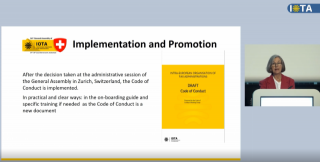 Rumen Spetsov, Bulgaria: Absolutely, I think it is an essential document for IOTA.
Rumen Spetsov, Bulgaria: Absolutely, I think it is an essential document for IOTA.
Ignacio del Río, Spain: Well, I think we all know that we have had some problems with this kind of issues inside of the organisation. Every organisation needs a document like this. I think all we have to do now is to put the Code of Conduct in practice.
Gábor Reményi, Hungary: I think this can be useful for IOTA, too. I was involved in the technical working group that prepared the Code of Conduct. Hopefully we will not need to use this document.
Edita Janušienė, Lithuania: It is the basis of organisational culture, congratulations on this step. It is important that it would be a "living" document and its provisions would be followed in practice.
Sanja Lukarevska, North Macedonia: The Code of Conduct is one of the main or basic documents in every organisation, so I wouldn’t say it is a major step but rather a necessity. The employees need to be informed about their expected behaviour during the working hours, and to have clear rules about the working processes. I can say that I`m glad that IOTA adopted the Code of Conduct and its implementation process.
ES/IOTA: Are you satisfied with the Working Program 2023 presented during the session?
Hans D’Hondt, Belgium: Yes, I’m especially glad that there are a lot of digital events. In the past, we stressed on the fact that IOTA wasn’t flexible enough. We now approve, in June 2022, the work programme that will start in 6 months and end in 18 months. These days, things move fast. Being able to address urgent issues through a webinar which can be set up in weeks rather than months, is a big step forward and an absolutely necessary step for IOTA to remain relevant.
Ignacio del Río, Spain: Even though some of the events are repetitive, I can imagine how difficult is to make plans for the next year and to decide about what we are going to do, perhaps we have to leave the door a little bit open as we need to be more flexible with this kind of programmes. Being flexible is very important.
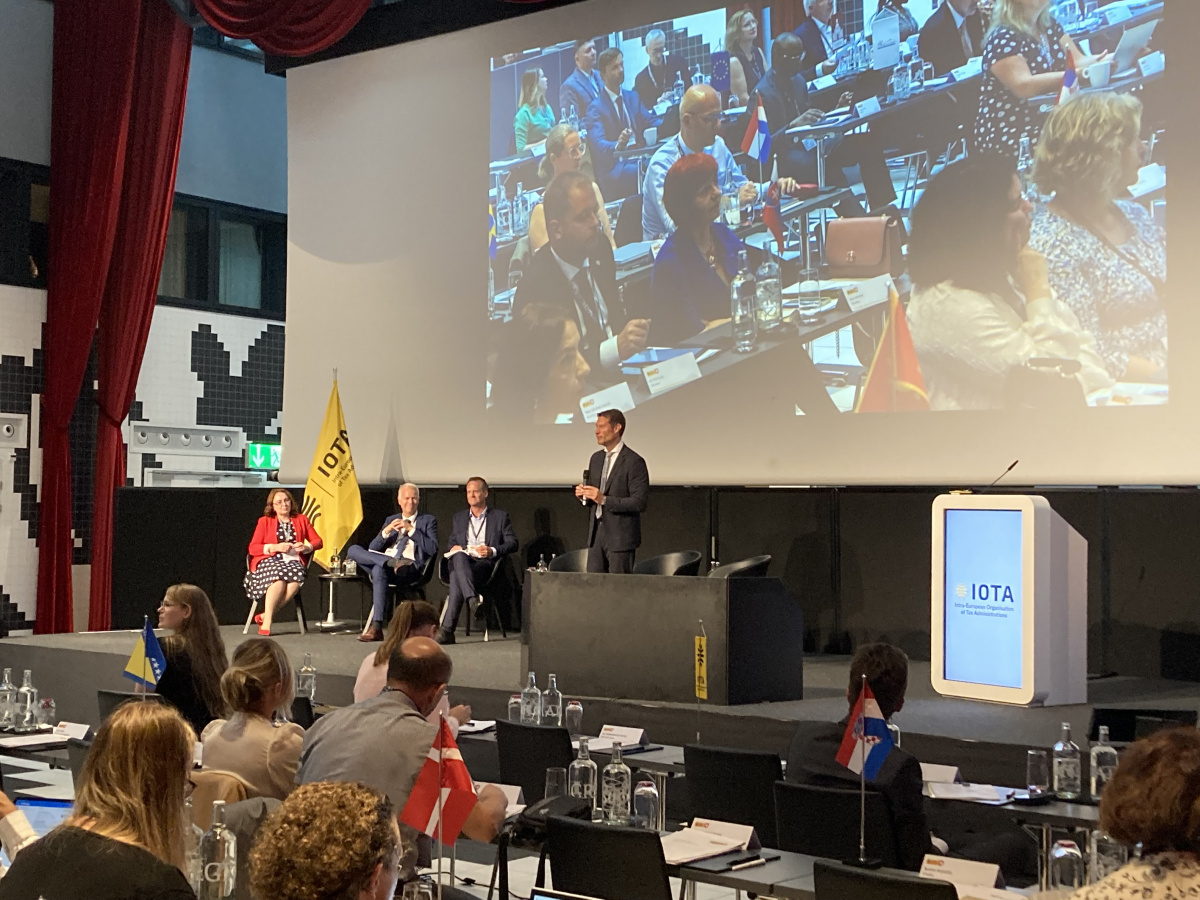
Rumen Spetsov, Bulgaria: I absolutely agree, and I share your thoughts, Ignacio. The flexibility is very important here.
Gábor Reményi, Hungary: Maybe this repetition happens because of the importance of the topics. We have highly important topics so that is why the repetitions can be okay. We just need to find the right balance between the repetitions, that is all.
Edita Janušienė, Lithuania: Yes, I am satisfied with the Working Program 2023 very much.
Sanja Lukarevska, North Macedonia: In my opinion the Working programme 2023 is quite comprehensive, comprised of various tax areas and issues, to be discussed from different perspectives and angles. The programme reflects the IOTA members` needs, but also the new and modern trends that we as a Tax administration must keep the pace with.
ES/IOTA: What do you like in Zurich the most? What are you excited about Zurich?
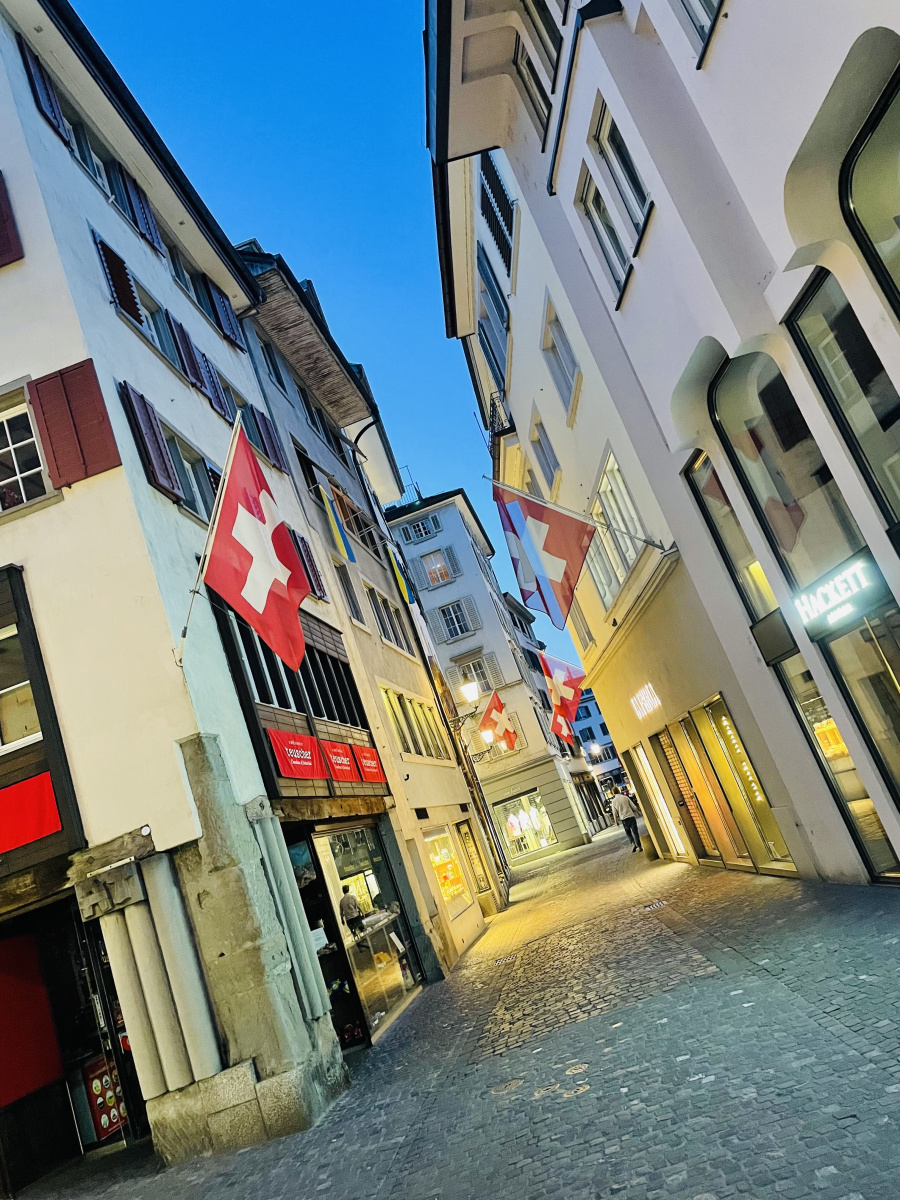 Hans D’Hondt, Belgium: Its history. Not only it is an important economic and financial centre but it is also a very interesting place to visit for cultural reasons. I’ll be back to visit the Kunsthaus and - of course - to check where the guitar shops are.
Hans D’Hondt, Belgium: Its history. Not only it is an important economic and financial centre but it is also a very interesting place to visit for cultural reasons. I’ll be back to visit the Kunsthaus and - of course - to check where the guitar shops are.
Ignacio del Río, Spain: I have recently had a good walk around the old city which is wonderful. Everything around here is completely well prepared and of course a little bit expensive, too. We have one day for the administration session and I think that having a little spare time for social activities would be really nice. Having fun with colleagues is also very important.
Rumen Spetsov, Bulgaria: This is my first time in Zurich and actually I thought that the Swiss people have more conservative behaviour and lifestyle but I am very surprised. I experienced very good vibes yesterday, I saw nice restaurants with small tables on the streets, just like in Italy. I will definitely visit Zurich again, but I need more time to take the impressions and discover the city. So I really hope that next time when IOTA organises an event in Zurich, we will have more time to look around the city.
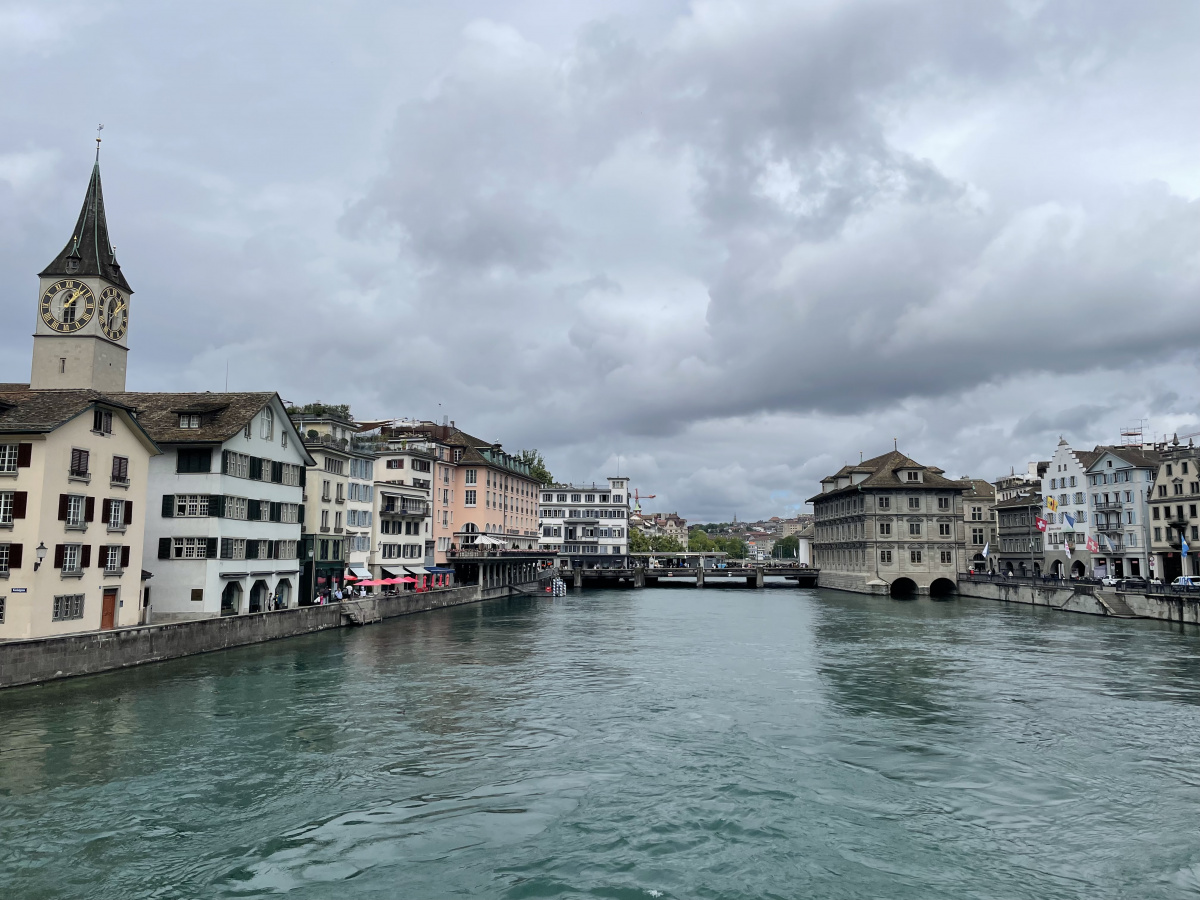 Gábor Reményi, Hungary: I did not have enough time to go out, either. Anyway, this is my second time here, I have visited Zurich two years ago when I attended an EC meeting, so I have had the chance to visit the city but now, unfortunately we will not have time for this.
Gábor Reményi, Hungary: I did not have enough time to go out, either. Anyway, this is my second time here, I have visited Zurich two years ago when I attended an EC meeting, so I have had the chance to visit the city but now, unfortunately we will not have time for this.
Edita Janušienė, Lithuania: It is a pity that we only had a few hours to enjoy the wonderful city: cosy, green, unpretentious. We were fascinated by sincere and friendly people, with a distinct sense of humour and unique style.
Sanja Lukarevska, North Macedonia: I would say the Swiss hospitality, professionalism and organisational skills. I`m excited to learn more about the Swiss rich culture and history and trying the famous Swiss chocolate!

